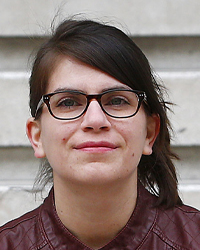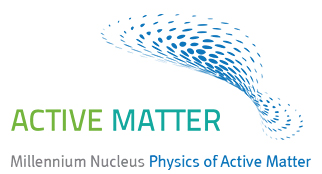The effects of geometric confinement in the individual swimmers’ dynamic and populations of swimmers are becoming the spotlight of various experimental and theoretical studies. It is a fundamental problem since surfaces dominate the biological process and its accumulation on the surface. During the first three years of the Nucleus, and among the achievements in this subject, stands out the description of the properties of bacterial systems in confined conditions, the identification of its thermodynamical phases, and the analysis of the flows produced by bacterial carpets and its possible role in their nutrition.
Research area
Swimmers under confinement and active colloids
On one side, in the new stage of the Nucleus, we will propose to develop an exhaustive study about the effect of confinement in the active matter. First of all, we will focus on how the geometric confinement modifies the dynamic of these active systems, forcing the cooperative movement in the biological and synthetic systems, and second, on how confinement can produce changes in the surrounding fluid vehicles and the transport across it.
On the other side, active colloids have arisen as a very promissory model of artificial active matter. During the first three years, we developed self-assembled microrobots that performed simple tasks. In this new stage, we will find to control its motion and produce them with greater efficiency.
 Researcher responsible:
Researcher responsible:
Francisca Guzmán Lastra

